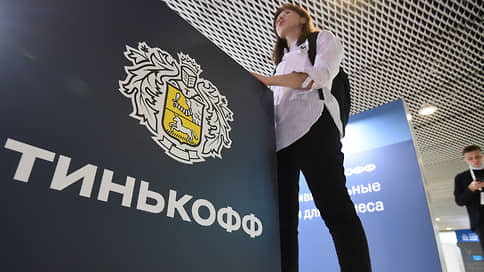Tinkoff won the court on its side – Kommersant FM
[ad_1]

Tinkoff Bank began to win cases regarding clients’ earnings on currency exchange due to a glitch. We are talking about cases where users were able to profitably convert rubles into dollars and euros through an intermediate purchase of British pounds. This happened back in February-March last year. Thanks to this scheme, it was possible to purchase American currency in the bank’s application for 87 rubles. versus 150 rub. when purchasing directly. Later, Tinkoff wrote off the benefits received from these clients, explaining the incident as a failure, and they decided to return the money through the court. As a result, the bank managed to win more than 20 similar cases.
At the same time, clients have about 30 successful appeals, a representative of a group of investors told RBC. But starting this year, the courts began to side with the bank more often. What is it connected with? Lawyer Vasily Cherepanov, who won three similar cases, is sure that the issue is the wrong strategy for protecting investors:
“You can’t just come to court and say that I was offended, I came to collect money. All this needs to be proven, and competently. Maybe someone saved money and went to court himself, and was rejected because he formulated the claims incorrectly. After this, a refusal decision appears, and the bank brings it to court hearings with other persons and says, they say, I have a precedent – I won the dispute, they refused – you also refuse.
And this, of course, has a strong impact, especially if the court of the same region refused. I work in the Perm region – we had no refusals. No one was sued except me. There was a series of transactions between the bank and my client that had to be executed. The organization did not dispute their legality, legality and existence.
If she tried to do this, then that’s one question. But the bank did not dispute them, so it could not take back what my client received from existing transactions. This is why we went to court. That is, the matter is not so complicated – you just need to convey to the court the position that transactions were made, no one disputed them, therefore they are valid. And the credit institution cannot take away everything that is received from them.”
Last year, lawyer Vasily Cherepanov helped his client return more than 1 million rubles. The court recognized the position of the plaintiff, who insisted that after the money was written off, the bank “illegally enriched itself” as justified. However, according to RBC, in the case of another client, the cassation authority sided with Tinkoff Bank. They considered that the investor had abused his right when carrying out transactions with currency.
And an additional argument was a technical examination, which confirmed the presence of a failure in March last year. Partner, head of the practice “Legal support of foreign trade activities” of the bar association “Regionservice” Maria Lyubimova is confident that the Supreme Court should clarify these matters. She believes that in most cases it is the bank’s clients who are right:
“In fact, it turned out that clients, acting strictly within the law and the rights provided for by the application and software, converted money from different currencies in the most profitable way for themselves. At first glance, of course, there cannot be any violations in such actions.
Probably, the courts follow a different logic when making such decisions, because in a situation where there is a dispute within the framework of consumer relations between the bank and the client, the latter is always right.
If there were any shortcomings in the software or software products, then the client should not suffer, as happened in this situation. On the other hand, this line is very thin, because the court must establish where a person acts within the limits of what is permitted, and where he is already abusing it.
I think the highest court will put an end to this difficult issue. This is exactly what her role is. One of the grounds for appealing to the Supreme Court may be divergent practice in identical cases, since the purpose of judicial proceedings is to make a fair decision. And it cannot be different for the same situation.”
In the summer, the Supreme Court considered a similar case. In 2021, a TSUM client purchased goods from luxury brands through an online application at prices starting from 19 thousand rubles. up to 129 thousand rubles, which is approximately 846 times lower than their market value. However, the store refused to deliver the order, explaining the situation as a glitch. Then the client reached the Supreme Court, which supported him. It followed from the decision that the price is fixed at the moment when the online order is assigned a number. And after this, the seller does not have the right to change the price unilaterally.
Everything is clear with us – Telegram channel “Ъ FM”.
[ad_2]
Source link





